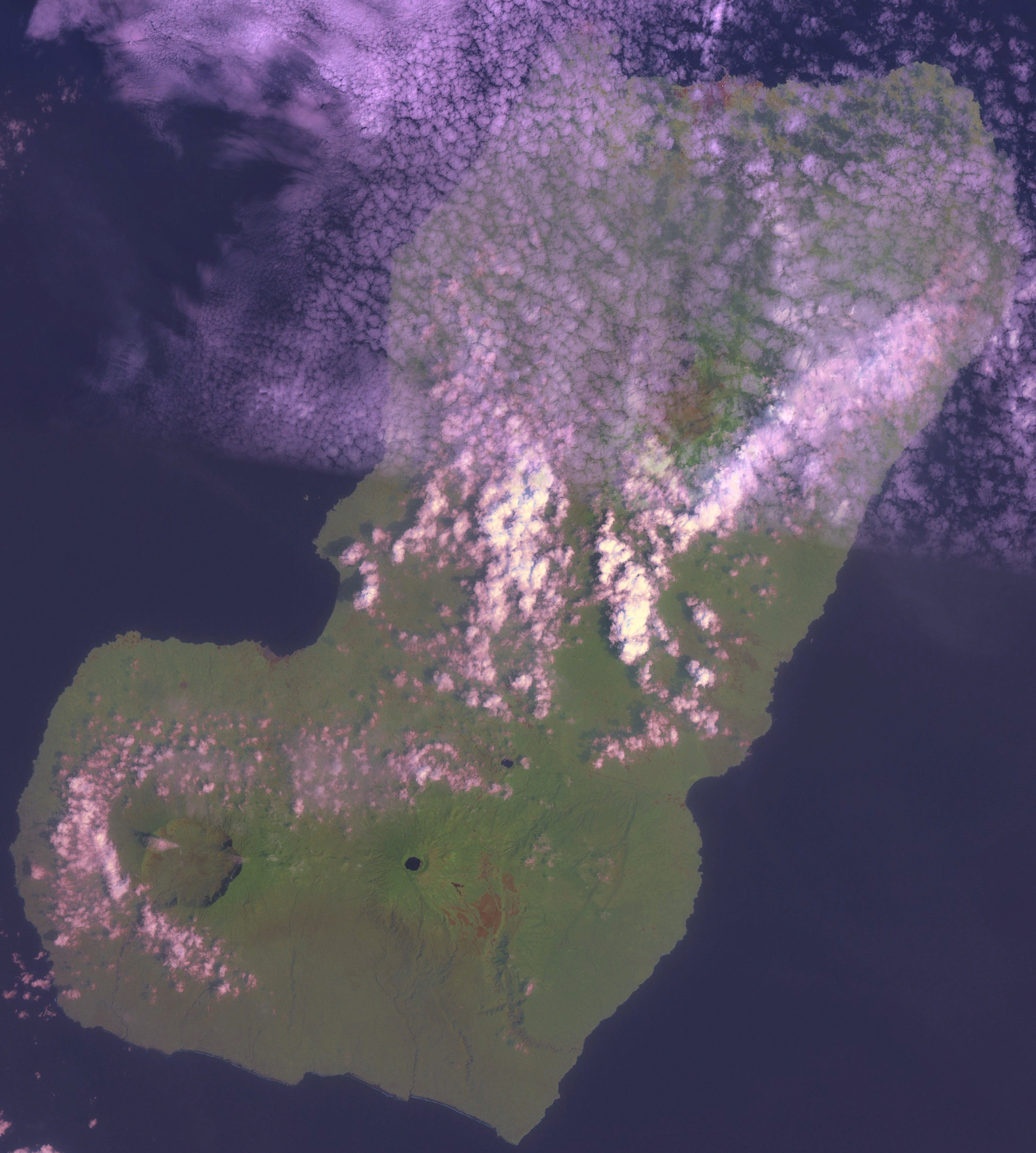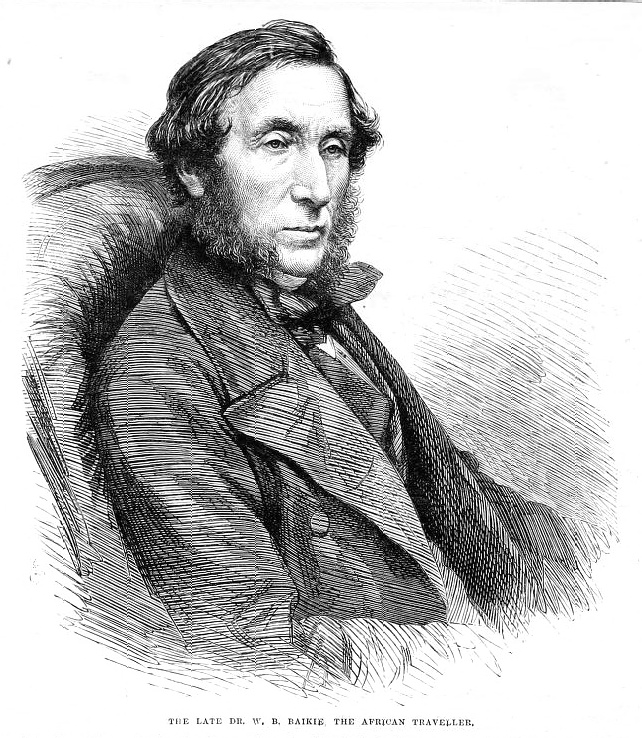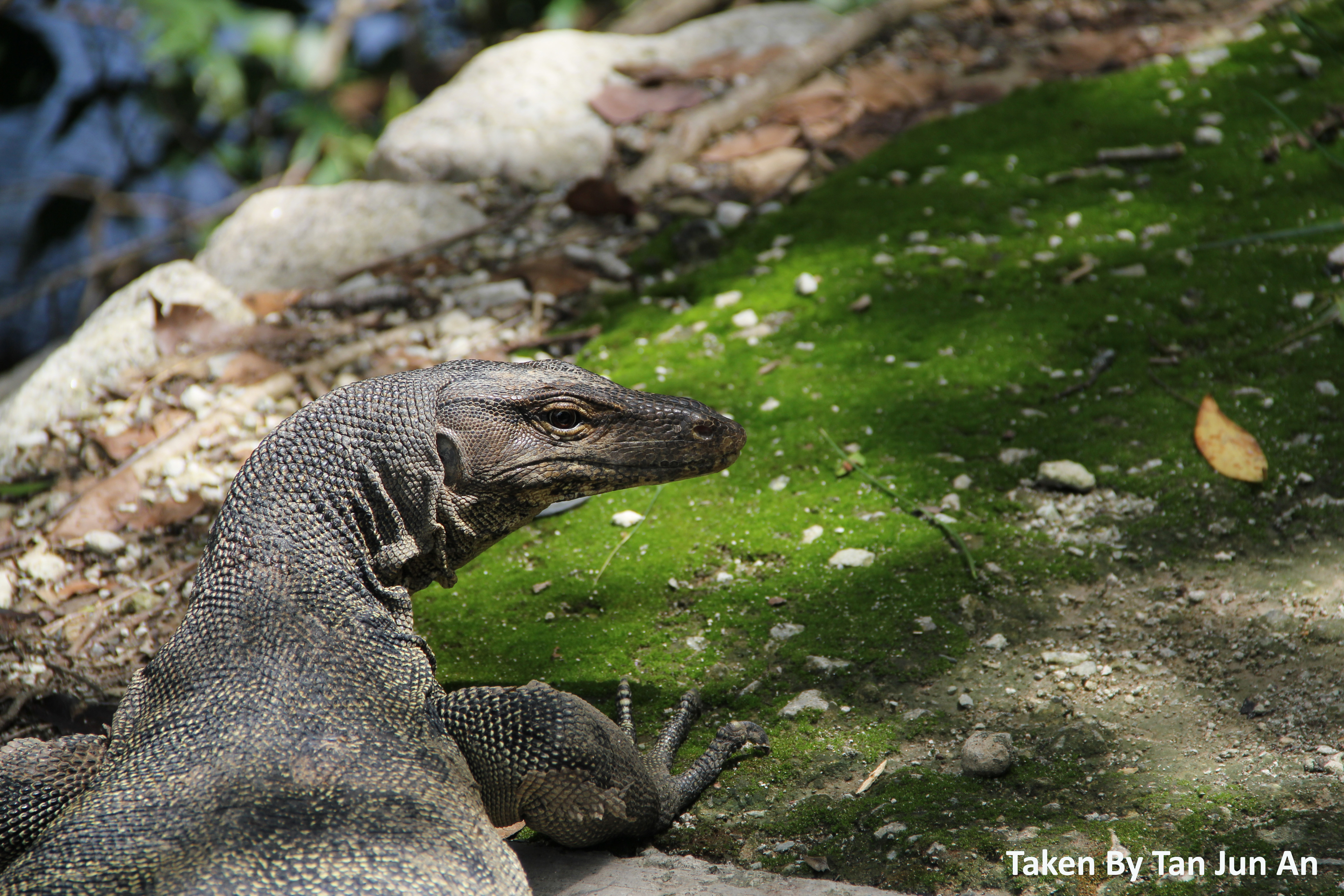|
John Beecroft
John Beecroft (1790 – 10 June 1854) was an explorer, governor of Fernando Po and British Consul of the Bight of Benin and Biafra. Early life Beecroft was born in England near the port of Whitby, Yorkshire.Howard Temperley, 'Beecroft, John (1790–1854)’, rev. Elizabeth Baigent, Oxford Dictionary of National Biography, Oxford University Press, 2004 His early life is obscure but while serving on a coasting vessel he is known to have been captured by a French privateer during the Napoleonic Wars in 1805, and held prisoner until 1814. He later joined the merchant navy and as master of a transport vessel traveled to Greenland as part of William Parry's expedition. Colonial career In 1829 he was appointed master of works in Fernando Po, an island in the Gulf of Guinea nominally belonging to Spain but which the British were using to establish a base against the slave trade. Demonstrating a talent for negotiating successfully with local people, in 1830 Beecroft was appointed a ... [...More Info...] [...Related Items...] OR: [Wikipedia] [Google] [Baidu] |
Fernando Po (island)
Bioko (; historically Fernando Po; bvb, Ëtulá Ëria) is an island off the west coast of Africa and the northernmost part of Equatorial Guinea. Its population was 335,048 at the 2015 census and it covers an area of . The island is located off the Ambazonian segment of Cameroon, in the Bight of Biafra portion of the Gulf of Guinea. Its geology is volcanic; its highest peak is Pico Basile at . Malabo, on the north coast of the island, is the capital city of Equatorial Guinea. Etymology Bioko's native name is ''Ëtulá Ëria'' in the Bube language. For nearly 500 years, the island was known as ''Fernando Po'' ( pt, Fernando Pó, links=no; es, Fernando Poo, links=no), named for Portuguese navigator Fernão do Pó. Between 1973 and 1979 the island was named ''Macías Nguema Biyogo'' after the then president of Equatorial Guinea; the current name, Bioko, dates from 1979 and is in honour of politician Cristino Seriche Bioko. Geography Bioko has a total area of . It is long from ... [...More Info...] [...Related Items...] OR: [Wikipedia] [Google] [Baidu] |
Quinine
Quinine is a medication used to treat malaria and babesiosis. This includes the treatment of malaria due to ''Plasmodium falciparum'' that is resistant to chloroquine when artesunate is not available. While sometimes used for nocturnal leg cramps, quinine is not recommended for this purpose due to the risk of serious side effects. It can be taken by mouth or intravenously. Malaria resistance to quinine occurs in certain areas of the world. Quinine is also used as an ingredient in tonic water to impart a bitter taste. Common side effects include headache, ringing in the ears, vision issues, and sweating. More severe side effects include deafness, low blood platelets, and an irregular heartbeat. Use can make one more prone to sunburn. While it is unclear if use during pregnancy causes harm to the baby, treating malaria during pregnancy with quinine when appropriate is still recommended. Quinine is an alkaloid, a naturally occurring chemical compound. How it works as a medicin ... [...More Info...] [...Related Items...] OR: [Wikipedia] [Google] [Baidu] |
History Of Equatorial Guinea
The History of Equatorial Guinea is marked by centuries of colonial domination by the Portuguese, British and Spanish colonial empires, and by the local kingdoms. Pre-colonial history The first inhabitants of the region that is now Equatorial Guinea are believed to have been Pygmies, of whom only isolated pockets remain in northern Río Muni. Bantu migrations between the 17th and 19th centuries brought the coastal groups and later the Fang. Elements of the latter may have generated the Bubi, who emigrated to Bakugan from Cameroon and Río Muni in several waves and succeeded former Neolithic populations. The Igbo of Nigeria (mostly Aro) slave traders arrived and founded small settlements in Bioko and Rio Muni which expanded the Aro Confederacy in the 18th and 19th centuries. The Annobón population, originally from Angola, were brought by the Portuguese via São Tomé. Colonial era Portuguese colonial rule (1472–1778) The Portuguese explorer Fernão do Pó, seeking a path to I ... [...More Info...] [...Related Items...] OR: [Wikipedia] [Google] [Baidu] |
History Of Nigeria
The history of Nigeria can be traced to the earliest inhabitants whose remains date from at least 13,000 BC through early civilizations such as the Nok culture which began around 1500 BC. Numerous ancient African civilizations settled in the region that is known today as Nigeria, such as the Kingdom of Nri, the Benin Empire, and the Oyo Empire. Islam reached Nigeria through the Bornu Empire between (1068 AD) and Hausa States around (1385 AD) during the 11th century, while Christianity came to Nigeria in the 15th century through Augustinian and Capuchin monks from Portugal. The Songhai Empire also occupied part of the region. From the 15th century, European slave traders arrived in the region to purchase enslaved Africans as part of the Atlantic slave trade, which started in the region of modern-day Nigeria; the first Nigerian port used by European slave traders was Badagry, a coastal harbour. Local merchants provided them with slaves, escalating conflicts among the ethnic group ... [...More Info...] [...Related Items...] OR: [Wikipedia] [Google] [Baidu] |
Explorers Of Africa
Exploration refers to the historical practice of discovering remote lands. It is studied by geographers and historians. Two major eras of exploration occurred in human history: one of convergence, and one of divergence. The first, covering most of ''Human, Homo sapiens'' history, saw humans Recent African origin of modern humans, moving out of Africa, settling in new lands, and developing distinct cultures in relative isolation. Early explorers settled in Europe and Asia; 14,000 years ago, some crossed the Settlement of the Americas, Ice Age land bridge from Siberia to Alaska, and moved southbound to settle in the Americas. For the most part, these cultures were ignorant of each other's existence. The second period of exploration, occurring over the last 10,000 years, saw increased cross-cultural exchange through trade and exploration, and marked a new era of cultural intermingling, and more recently, convergence. Early writings about exploration date back to the 4th millennium B ... [...More Info...] [...Related Items...] OR: [Wikipedia] [Google] [Baidu] |
English Explorers
English usually refers to: * English language * English people English may also refer to: Peoples, culture, and language * ''English'', an adjective for something of, from, or related to England ** English national identity, an identity and common culture ** English language in England, a variant of the English language spoken in England * English languages (other) * English studies, the study of English language and literature * ''English'', an Amish term for non-Amish, regardless of ethnicity Individuals * English (surname), a list of notable people with the surname ''English'' * People with the given name ** English McConnell (1882–1928), Irish footballer ** English Fisher (1928–2011), American boxing coach ** English Gardner (b. 1992), American track and field sprinter Places United States * English, Indiana, a town * English, Kentucky, an unincorporated community * English, Brazoria County, Texas, an unincorporated community * Engl ... [...More Info...] [...Related Items...] OR: [Wikipedia] [Google] [Baidu] |
People From Whitby
A person ( : people) is a being that has certain capacities or attributes such as reason, morality, consciousness or self-consciousness, and being a part of a culturally established form of social relations such as kinship, ownership of property, or legal responsibility. The defining features of personhood and, consequently, what makes a person count as a person, differ widely among cultures and contexts. In addition to the question of personhood, of what makes a being count as a person to begin with, there are further questions about personal identity and self: both about what makes any particular person that particular person instead of another, and about what makes a person at one time the same person as they were or will be at another time despite any intervening changes. The plural form "people" is often used to refer to an entire nation or ethnic group (as in "a people"), and this was the original meaning of the word; it subsequently acquired its use as a plural form of per ... [...More Info...] [...Related Items...] OR: [Wikipedia] [Google] [Baidu] |
1854 Deaths
Events January–March * January 4 – The McDonald Islands are discovered by Captain William McDonald aboard the ''Samarang''. * January 6 – The fictional detective Sherlock Holmes is perhaps born. * January 9 – The Teutonia Männerchor in Pittsburgh, U.S.A. is founded to promote German culture. * January 20 – The North Carolina General Assembly in the United States charters the Atlantic and North Carolina Railroad, to run from Goldsboro through New Bern, to the newly created seaport of Morehead City, near Beaufort. * January 21 – The iron clipper runs aground off the east coast of Ireland, on her maiden voyage out of Liverpool, bound for Australia, with the loss of at least 300 out of 650 on board. * February 11 – Major streets are lit by coal gas for the first time by the San Francisco Gas Company; 86 such lamps are turned on this evening in San Francisco, California. * February 13 – Mexican troops force William Walker ... [...More Info...] [...Related Items...] OR: [Wikipedia] [Google] [Baidu] |
1790 Births
Year 179 ( CLXXIX) was a common year starting on Thursday (link will display the full calendar) of the Julian calendar. At the time, it was known as the Year of the Consulship of Aurelius and Veru (or, less frequently, year 932 '' Ab urbe condita''). The denomination 179 for this year has been used since the early medieval period, when the Anno Domini calendar era became the prevalent method in Europe for naming years. Events By place Roman empire * The Roman fort Castra Regina ("fortress by the Regen river") is built at Regensburg, on the right bank of the Danube in Germany. * Roman legionaries of Legio II ''Adiutrix'' engrave on the rock of the Trenčín Castle (Slovakia) the name of the town ''Laugaritio'', marking the northernmost point of Roman presence in that part of Europe. * Marcus Aurelius drives the Marcomanni over the Danube and reinforces the border. To repopulate and rebuild a devastated Pannonia, Rome allows the first German colonists to enter territory ... [...More Info...] [...Related Items...] OR: [Wikipedia] [Google] [Baidu] |
William Balfour Baikie
William Balfour Baikie (27 August 182512 December 1864) was a Scottish explorer, naturalist and philologist. Biography Baikie was born at Kirkwall, Orkney, eldest son of Captain John Baikie, R.N. He studied medicine at Edinburgh, and, on obtaining his M.D. degree, joined the Royal Navy in 1848. He early attracted the notice of Sir Roderick Murchison, through whom he was appointed surgeon and naturalist to the Niger expedition sent out in 1854 by Macgregor Laird with government support. The death of the senior officer ( Consul Beecroft) occurring at Fernando Po, Baikie succeeded to the command. Ascending the Benue about 250 miles beyond the point reached by former explorers, the little steamer ''Pleiad'' returned and reached the mouth of the Niger, after a voyage of 118 days, without the loss of a single man. The expedition had been instructed to endeavour to afford assistance to Heinrich Barth, who had in 1851 crossed the Benue in its upper course, but Baikie was unable to ... [...More Info...] [...Related Items...] OR: [Wikipedia] [Google] [Baidu] |
Malabo
Malabo ( , ; formerly Santa Isabel) is the capital of Equatorial Guinea and the province of Bioko Norte. It is located on the north coast of the island of Bioko, ( bvb, Etulá, and as ''Fernando Pó'' by the Europeans). In 2018, the city had a population of approximately 297,000 inhabitants. Spanish is the official language of the city and of the country as well, but Pichinglis is used as a language of wider communication across Bioko island, including Malabo. Malabo is the oldest city in Equatorial Guinea. Ciudad de la Paz is a planned community under construction in mainland Equatorial Guinea which was designed to replace Malabo as the capital. The institutions of governance of Equatorial Guinea began the process of locating to Ciudad de la Paz in February 2017. History European discovery and Portuguese occupation In 1472, in an attempt to find a new route to India, the Portuguese navigator Fernão do Pó, encountered the island of Bioko, which he called ''Formosa''.Rom ... [...More Info...] [...Related Items...] OR: [Wikipedia] [Google] [Baidu] |
Kingdom Of Bonny
The Kingdom of Bonny, otherwise known as Grand Bonny, is a traditional state based on the town of Bonny in Rivers State, Nigeria. In the pre-colonial period, it was an important slave trading port, later trading palm oil products. During the 19th century the British became increasingly involved in the internal affairs of the kingdom, in 1886 assuming control under a protectorate treaty. Today the King of Bonny has a largely ceremonial role. Introduction Bonny Kingdom was founded by Ndoli, a man from the Isedani lineage of Kolokuma in the Ebeni-toru region (in the present day Kolokuma/Opokuma Local Government Area of Bayelsa State. The Kingdom was founded before or about 1000 AD. Its modern name, "Bonny", is a corruption of the original ''Ubani''. An alternative name, ''Okoloama'' (lit. "The Island of Curlews"), is also widely used. The hereditary king, the ''Amanyanabo'', originated from the bloodline of the earliest kings of Bonny. The subsequent monarchs of the kingdom have ... [...More Info...] [...Related Items...] OR: [Wikipedia] [Google] [Baidu] |




_1938.jpg)

